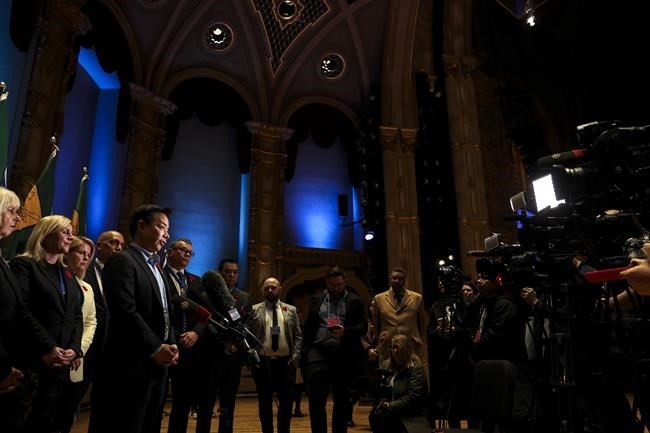VANCOUVER — Nearly six years after Vancouver became the largest city in Canada to commit to a living wage, councillors voted to end the initiative.
In a closed-door meeting in January, council approved the action and directed staff to implement what it calls a "fair wage," by calculating the average of five years of living wages.
The city says in a statement that the living wage rate for 2023 would have gone up more than 17 per cent to just above $24 per hour, immediately influencing its pay structure.Â
A statement posted by the group Living Wage for Families calls Vancouver's decision "incredibly disappointing."
The group says calculating wages on a five-year rolling average means workers must pay for rent or food at today's costs using a wage based on the average earned since 2018.
The living wage is the hourly amount two adults working full time must earn to support the basic needs of a family of four, but it does not cover debt repayment or savings for retirement.
The hourly living wage for Metro Vancouver is set at $24.08, but Anastasia French, with Living Wage for Families BC, says Vancouver's change will cut earnings for its workers and contractors to at least $20.90 an hour.
“We’re grateful for the hundreds of employers across B.C., including the cities of Port Coquitlam, Quesnel and Victoria, that have committed to pay their staff the new living wage," French says in the statement.Â
"These employers have found that paying a living wage is good for workers, good for business and good for the local community."
Details on the City of Vancouver website show it became a living wage employer on May 1, 2017.
At the time, it said the policy was a priority of its Healthy City Strategy and demonstrated a "commitment to support healthy, thriving communities and help individuals and families make ends meet."
The living wage includes direct wages and the value of non-mandatory benefits, such as paid sick leave, and extended health benefits.
A calculator on the website of Living Wage for Families BC shows its proposed living wage can be as low as $18.98 in the Fraser Valley or as high as $25.87 in Daajing Giids on Haida Gwaii.
This report by The Canadian Press was first published March 3, 2023.
The Canadian Press




